Max Steiner • 1888-1971

Maximilian Raoul Walter Steiner was born in Vienna on 10 May 1888, at a time when the Strauss family was still alive and well, but the break-up of the Austro-Hungarian Empire and the end of its carefree society were already in sight. The Steiner family was more than well off: Maximilian Steiner, Max's grandfather, had directed the famous “Theater an der Wien” and produced the first operettas by Franz von Suppé and Johann Strauss Jr. His father, Gabor, controlled five major theatres and an amusement park (for the record: it was he who built the Ferris wheel in the Prater). Marie Hollmann, his mother, had inherited three of Vienna's most fashionable restaurants.
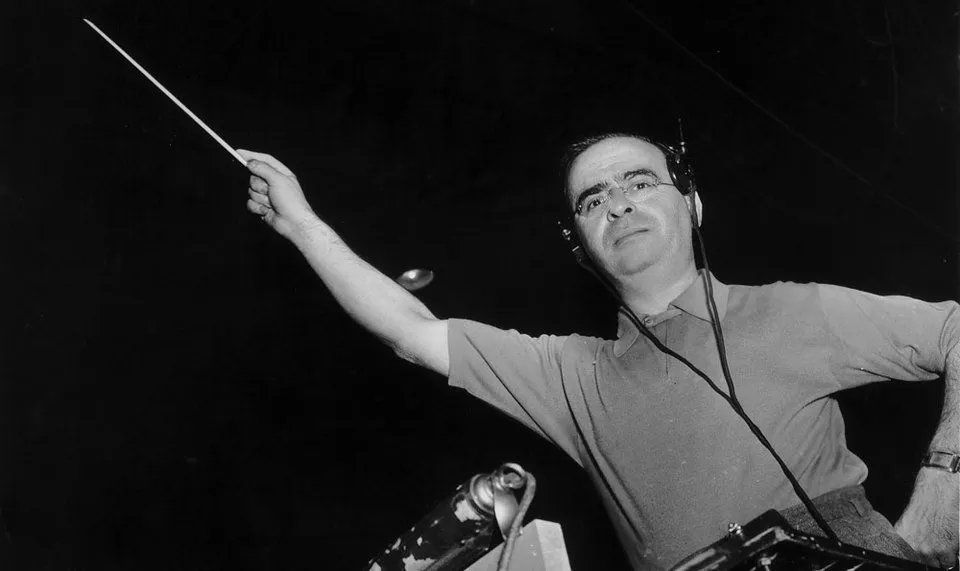
Every revelation since the initiation, in 1986, of research toward the realisation of a long-overdue, credible, biography of Max Steiner begs the question WHY? Why has Max been denied greater awareness and, thereby, greater appreciation of his formative years, the very foundation upon which his unique contribution to motion picture history was to be built. True, current literature, for the most part, hints of his extraordinary background, the detail regrettably being more representative of shadow than substance. In the Society’s 25th Anniversary issue of the Journal stress was laid upon the fact that, by then, we had merely scratched the surface – in the analogy of “Gold Is Where You Find It,” we had still to strike the mother lode.
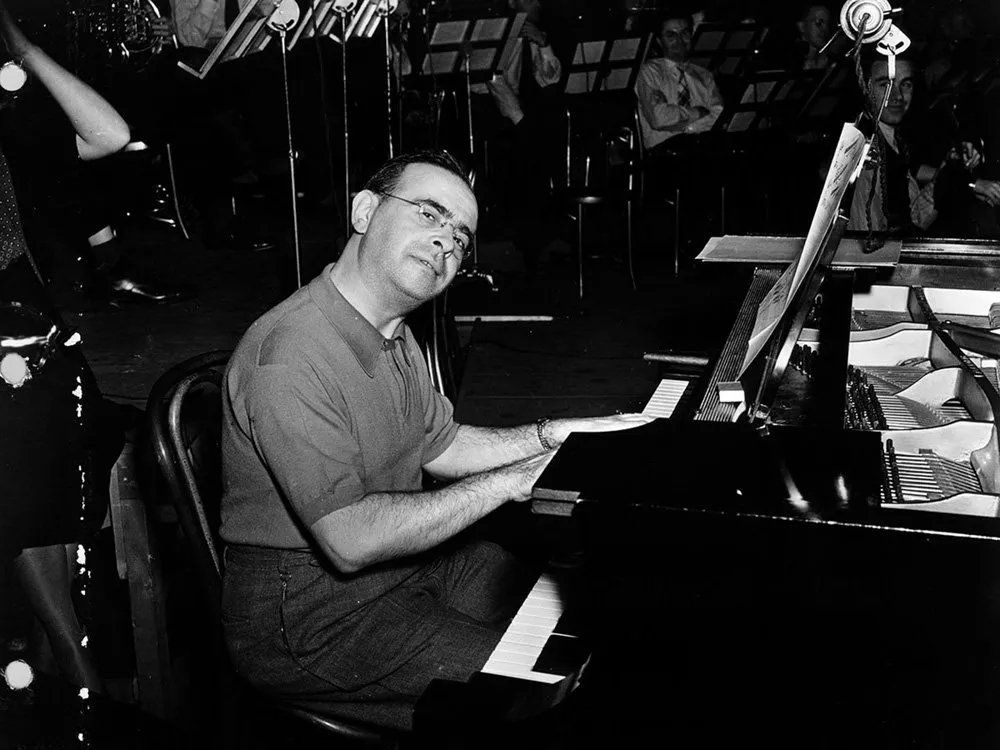
The 2-hours documentary spends less time on Steiner's biography outside of his work and influences, but even here, though, we learn that Steiner was also a prolific husband - marrying four times. Or, that his son committed suicide. That Steiner was Jewish is also briefly touched upon and mostly in regards to his scoring of "Confessions of a Nazi Spy" (1939) ...

In this age of shrinking record catalogs, new recordings of old film music are rare and sometimes precious things. Quality sound recordings are especially valuable for teaching film music, but the market appears to be far too small for most record companies to invest in. In this climate the current discography of even a composer of Max Steiner’s stature is scant. Despite his prolificacy, his acknowledged importance, and the enduring popularity of many of the films he worked on, few recordings of Steiner’s film scores have been released on CD. Aside from various collections of “highlights,” there have only been recordings of the music from the most famous films: primarily, GONE WITH THE WIND, CASABLANCA and KING KONG, but even these are now mostly out of print. For this reason, the efforts of the Naxos and Marco Polo record labels should be more widely known.
Behind the Screen
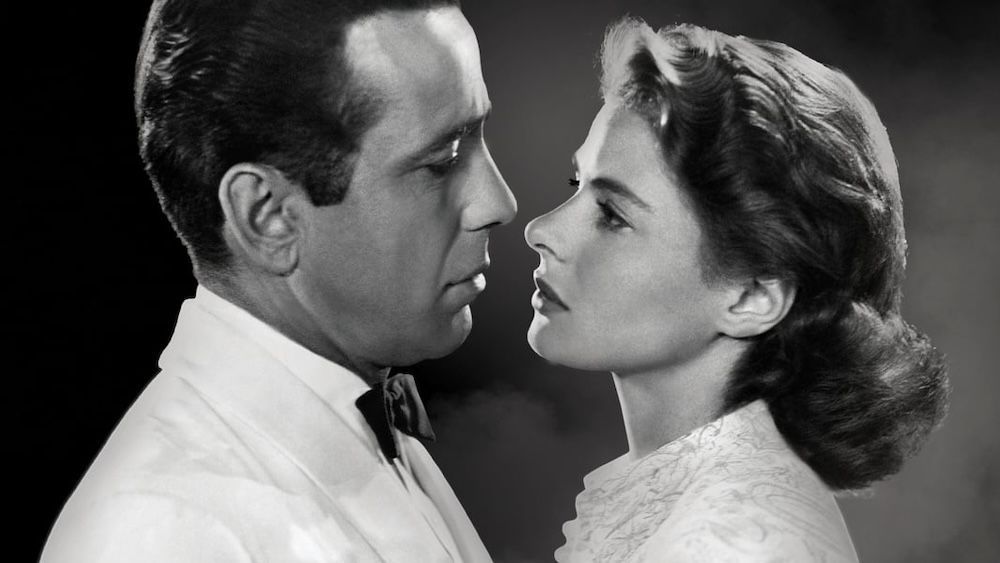
When Max Steiner agreed to score the Warner Bros. movie CASABLANCA, he insisted on replacing Herman Hupfeld's 1931 song As Time Goes By, preferring to use one of his own. His logic was nearly irrefutable - use of this previously written song would handicap him as a composer, forcing him to score the film with a theme not nearly as customised and functional for this specific project as the new one he might write.
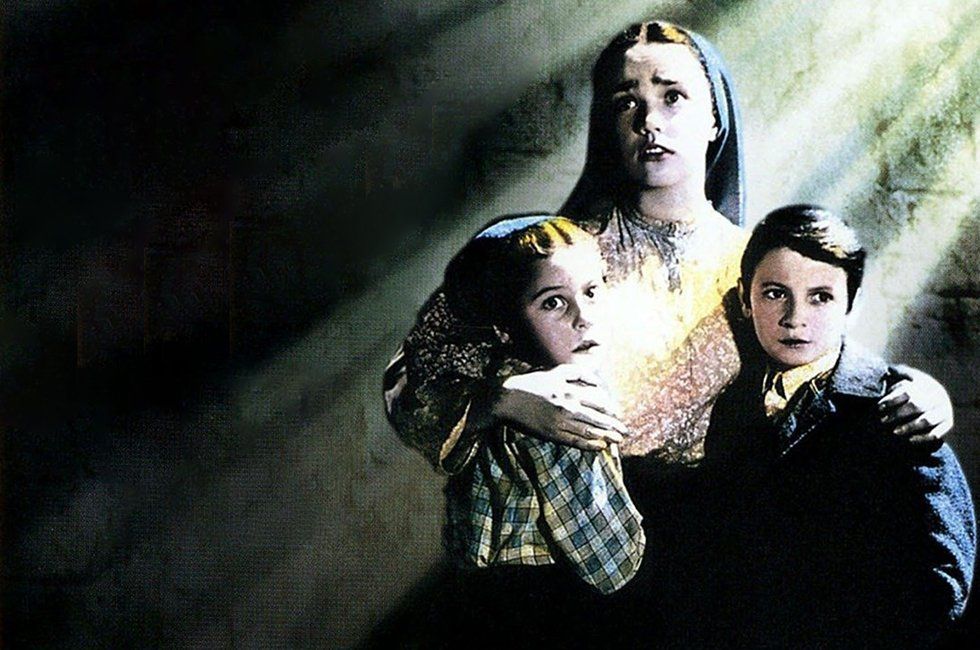
This is one of Steiner's best scores; in it he demonstrates that when given the opportunity, he has a large fund of musical knowledge upon which to draw, and can project various levels of dramatic intensity with a versatility comparable to opera composers of the past. Absent are the overdrawn sequences of lush sentimentality which have come to be associated with some film music - cloying music which tries to outdo the film rather than supplement it. Instead, Steiner keeps his music on a subdued level throughout much of the film, and, with a sure sense of dramatic movement, rises swiftly to a brief climax at the crucial point of a particular sequence. This is background music in its truest sense; coloring, highlighting, and intensifying what is on the screen, and not duplicating it.
Reviews
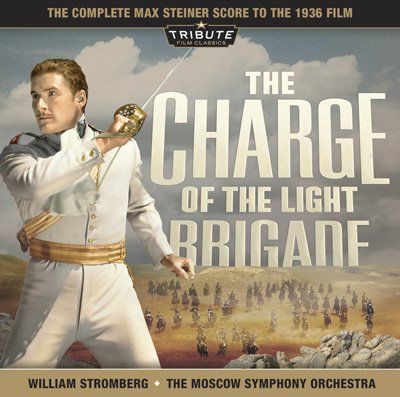
Max Steiner’s ambitious, epic score for THE CHARGE OF THE LIGHT BRIGADE (1936) has been captured with extraordinary skill and verve by the Moscow Symphony Orchestra, conducted by William Stromberg, in this spectacular 2 CD recording on the Tribute label. Hearing the music utilising modern recording techniques enables the music to be heard anew compared to the limited fidelity of the original mono soundtrack. Much of the music recorded here from Steiner’s original score sheets is being heard for the first time – before cues were altered or cut from the film. Of course, Steiner practically invented film music and more than any other composer his music signifies the Golden Age of film music. CHARGE was his first score for Warner Bros. from which he went on to compose a great number of scores for the studio, effectively becoming the Warner Bros. ‘sound’.
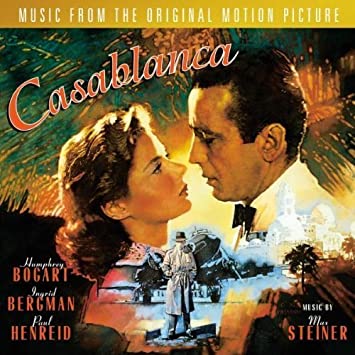
Max Steiner's considerable score for She (1935) proves, once again, the genius of 'the granddaddy' of the pioneering film composers of Hollywood's Golden Age. This film was produced by Merian C. Cooper who had been at the helm of King Kong (also for RKO) and Steiner's score is not too dissimilar from his Kong music. [In passing it is interesting to compare Steiner's score with that of Dimitri Tiomkin for Lost Horizon another film with eternal youth as its theme but in a more benign context!]
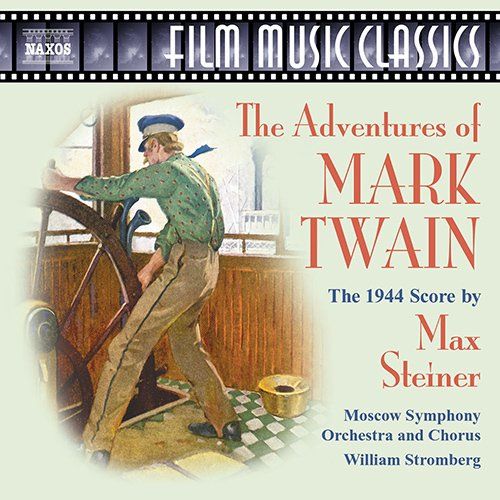
The problems involved in arranging Steiner’s score for Naxos’s ‘Film Music Classics’ series are adroitly laid out by John Morgan in the booklet notes. Morgan cut the overture – comprising main themes heard later – and then reduced the hundred minute score to the seventy we hear on the disc, principally by getting rid of repetitions. Steiner’s first choice orchestrator, Hugo Friedhofer, was unavailable so the job fell to the experienced Bernhard Kaun, who had to cope with some colourful piquancies that add much to the score – an extended bassoon solo, and a role for steel guitar amongst others.
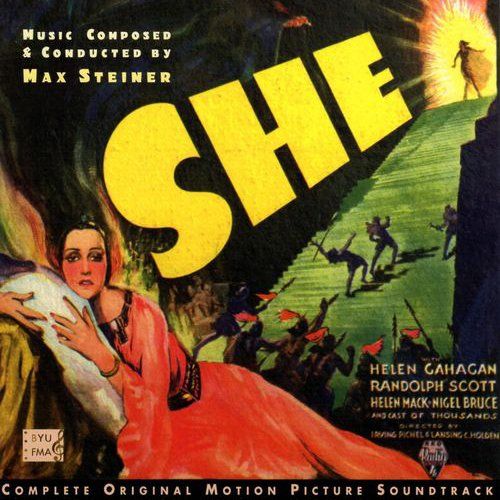
Max Steiner's considerable score for She (1935) proves, once again, the genius of 'the granddaddy' of the pioneering film composers of Hollywood's Golden Age. This film was produced by Merian C. Cooper who had been at the helm of King Kong (also for RKO) and Steiner's score is not too dissimilar from his Kong music. [In passing it is interesting to compare Steiner's score with that of Dimitri Tiomkin for Lost Horizon another film with eternal youth as its theme but in a more benign context!]
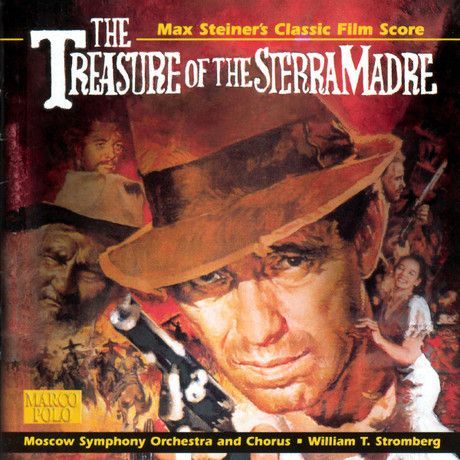
The team of conductor William T. Stromberg and score restorer John Morgan have already given film score collectors a wealth of great Golden Age soundtracks on Marco Polo Records. The Stromberg-Morgan duo have already recorded several memorable Steiner soundtracks, notably KING KONG and THEY DIED WITH THEIR BOOTS ON.
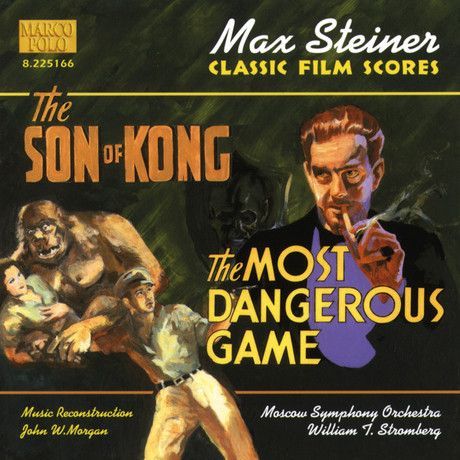
As a movie, SON OF KONG was a pale shadow of its forbearer, a hastily put-together sequel to the greatest fantasy adventure of the 1930s, and an endearing classic to this day. SON was not without its charm, however, as it strove to be more comically cute than its predecessor, although in so doing eschewed the brilliant adventure of KING KONG for its more cornball comedy. THE MOST DANGEROUS GAME, which preceded KING KONG by a year, was filmed by the same crew on the same sets. In fact, all three RKO films form a kind of creative trilogy, as pointed out by Ron Fortier in his explanatory notes accompanying this remarkable new release. Fortier also remarks that “… the charming score for SON OF KONG, when set apart from the film, arguably makes for a far more cohesive and pleasurable listening experience than even that for KING KONG, for all its titanic, ground- shaking verve.”



